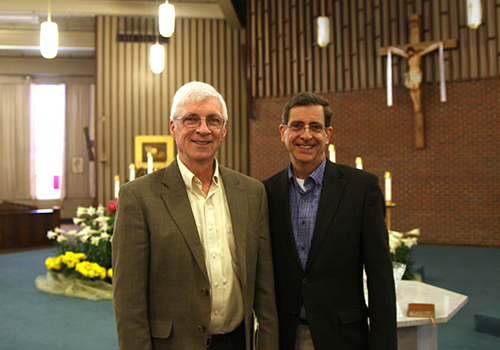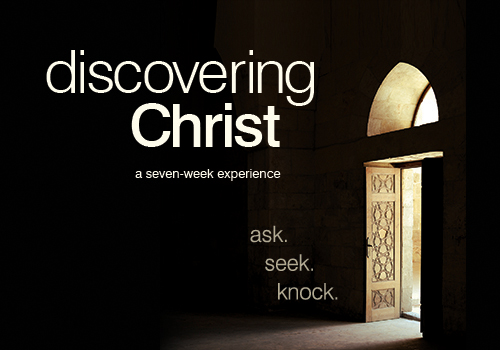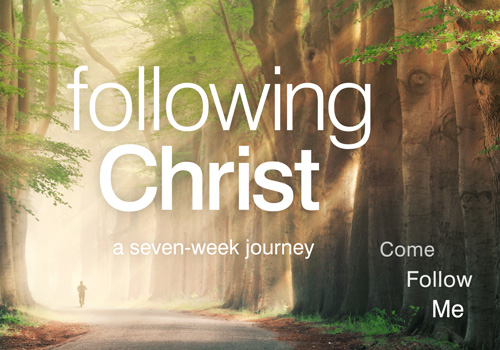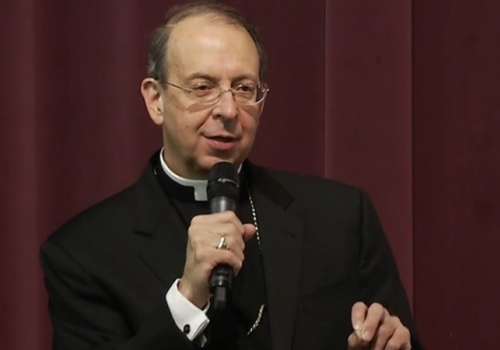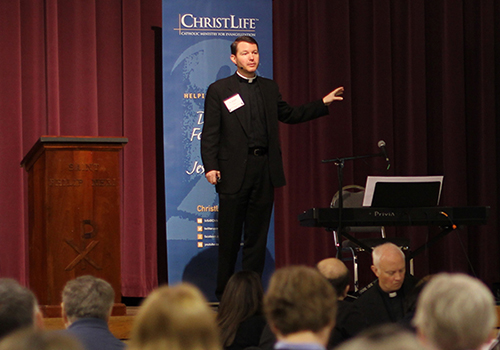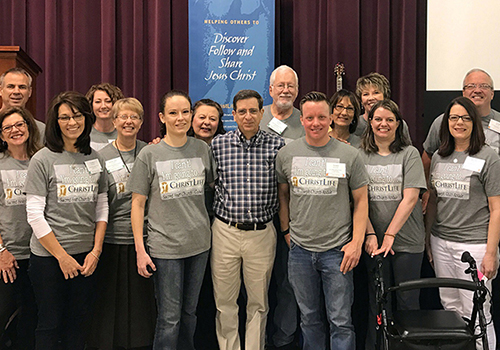June 08, 2016
Evangelizing Young Adults: Part 2
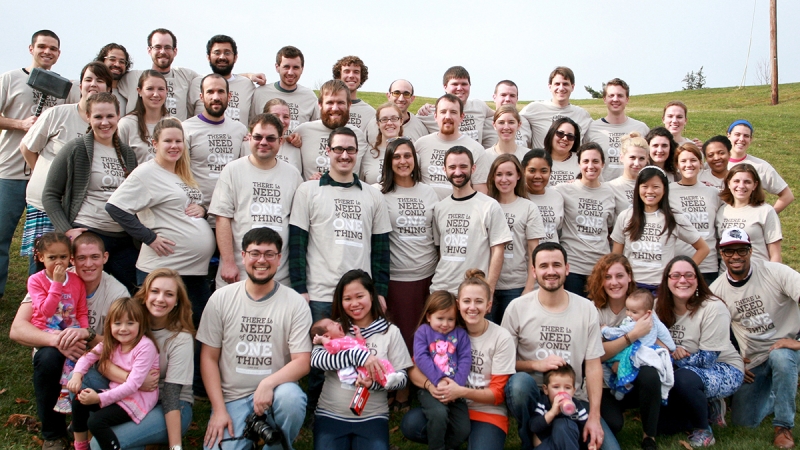
By: Pete Ascosi
In the first part of this article I shared the story of the beginnings of ChristLife Young Adults as a backdrop for learning how to evangelize young adults.
Diving deeper into the experience of ChristLife Young Adults over the past seven years, what are some specific lessons that we have learned when it comes to evangelizing young adults?
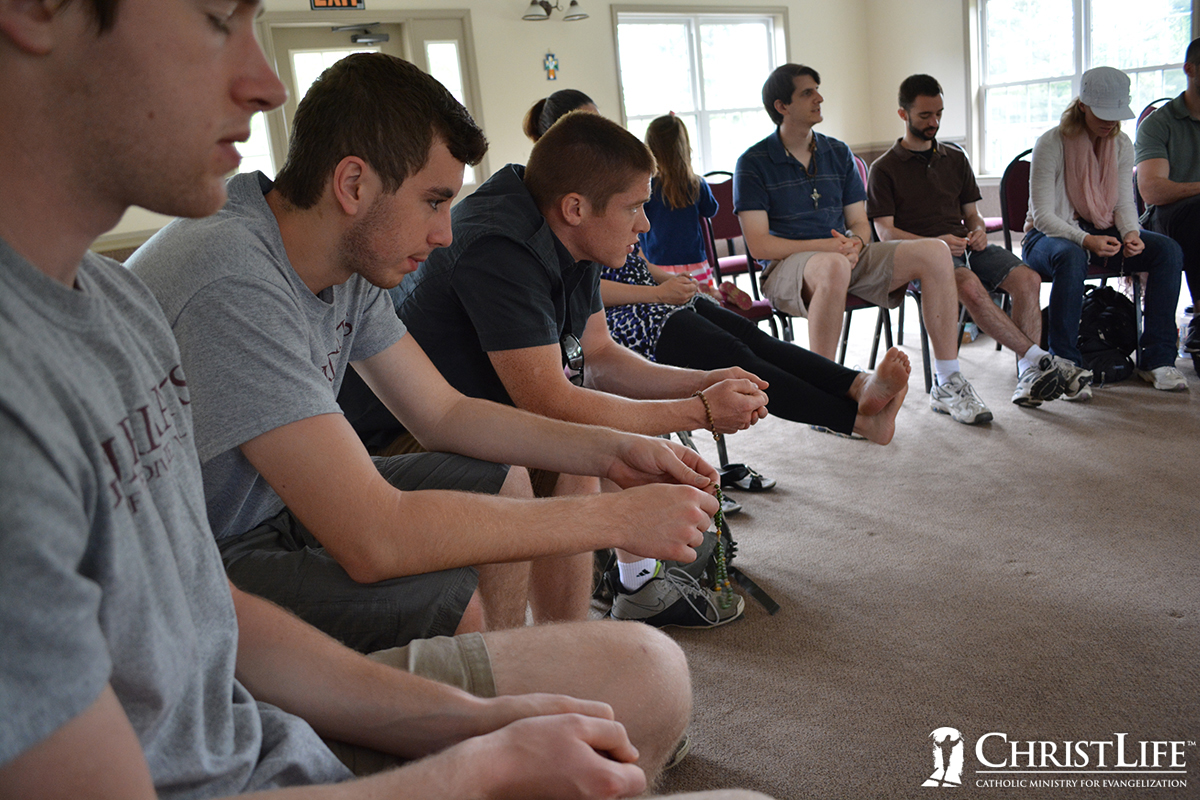
We often say at ChristLife “presume nothing” when it comes to how well Catholics are evangelized or catechized. In reflecting how the Lord changed his life through ChristLife Young Adults, one young man, Jonathan, remarked, “When I first came to ChristLife I was a Catholic on the outside, and an atheist on the inside.” Over time his life began to change as he went through the ChristLife courses and experienced a community of Catholic young adults who were followers of Christ both on the inside and outside.
Over the years I’ve met hundreds of young adults like Jonathan, who come from many different socioeconomic backgrounds, career paths, vocational journeys, and ethnicities. Most, but not all, grew up Catholic. Some are very well formed but lack a personal relationship with the Lord, others are simply culturally Catholic, and still others come from other Christian denominations or even a few from non-Christian backgrounds.
Because of the increasingly diverse environment in which we live, our first aim was not to start a Catholic young adult group. Our fundamental aim was, and is, broader: to evangelize young adults leading them to a personal relationship with Jesus Christ and into a life of discipleship in the Catholic Church. As Pope Francis writes in The Joy of the Gospel:
“We have rediscovered the fundamental role of the first announcement or kerygma, which needs to be the center of all evangelizing activity and all efforts at Church renewal” (164).
This leads to the first lesson we learned: we need to place first things first when it comes to reaching young adults. How do we do this? By constantly trying to create an evangelizing environment where the aim is conversion. This conversion is something that every single person -- from cradle Catholics to non-Christians -- needs. It is a reorientation of life to place Jesus Christ at the absolute center, to invite Him to truly be Lord of our lives. As St. John Paul II writes in The Mission of the Redeemer:
“Conversion means accepting by personal decision the saving sovereignty of Christ and becoming his disciple” (46).
In the past seven years, the Discovering Christ course has not only been the primary way in which we lead young adults to conversion, but it has taught us a ministry model where, whether we are doing a ChristLife course or not, we regularly have opportunities for people to hear the first proclamation and respond by surrendering their lives to the Lord.
For example, we recently ran a series based on Ralph Martin’s book Hungry for God. Each week we had a speaker present on the assigned chapter and had small groups. Ralph’s book begins with three chapters on personal relationship with the Father, Son, and Holy Spirit. We purposely chose a book that began with an explicit proclamation of the kerygma, and after the third chapter on the Holy Spirit, people were invited to surrender their lives to the Lord. One young woman that evening remarked in her small group that this was the first time she had surrendered her life to the Lord!
Finally when it comes to the first announcement, we’ve learned the importance of evangelizing the whole person. As St. John Paul II said,
“Evangelization must touch people’s minds and hearts, stir their consciences and engage their energies” (March 3, 1990).
This principle of evangelizing the whole person is reflected in our meeting format. We typically begin with a time of singing and prayer. If we are doing Discovering Christ, this time is shorter, usually just a couple songs. If we are in a season focused on spiritual growth, this time is extended to 30 minutes. Singing together and worshipping touches our hearts and engages our energies. After worship the emcee welcomes everyone warmly, shares announcements, and may even use some humor in his or her remarks to put everyone at ease. We next move into a live or video presentation. The talk aims to touch and form people’s minds and invites them to learn something new, while the small group discussion -- whether formally with a group or just turning to the person seated next to you -- helps people to personally relate to the talk content. The meeting closes with fellowship, which fosters the growth of community: our second major lesson learned in evangelizing young adults.
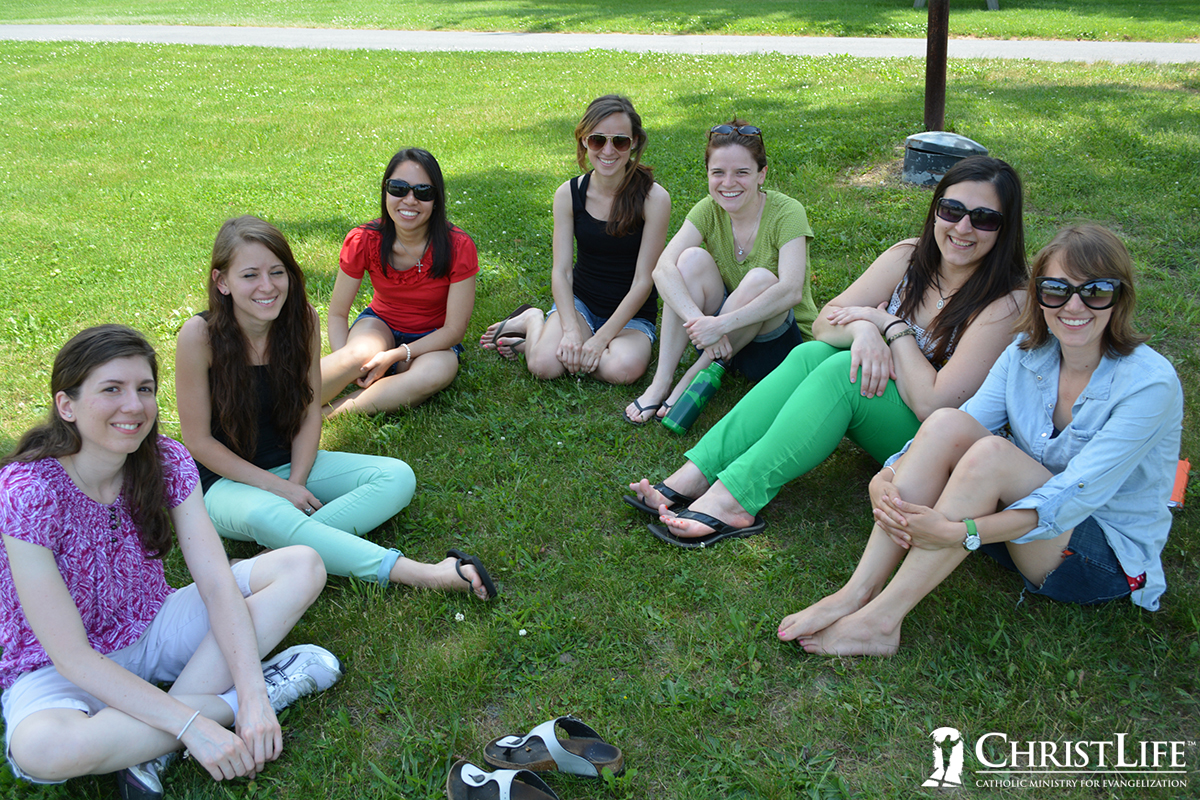
Intentionally building a culture of encounter is key to young adult evangelization and ministry. When we evangelize young adults it isn’t just a matter of giving them the right facts about the faith, but about creating an atmosphere where they feel safe to open up and be vulnerable about the entirety of their lives. St. John Paul II encouraged the Church to be a genuine school of communion in At the Beginning of the New Millennium:
“To make the Church the home and the school of communion: that is the great challenge facing us in the millennium which is now beginning, if we wish to be faithful to God's plan and respond to the world's deepest yearnings” (43).
Young adults have a deep yearning to not just learn facts about the faith, but to experience the power of community. For many people, belonging comes before believing. And while everyone yearns for community, true community--really being family, brothers and sisters--is only fully realized through conversion to Christ. It is the Gospel that breaks down “the dividing wall” between people and creates familial bonds stronger even than one’s biological family (Ephesians 2:14).
On a practical level this has meant ensuring that we don’t just have a welcoming person, but that we help everyone who comes regularly to understand the importance of hospitality. This also means respecting the differences between men and women, and periodically doing gender-specific small groups, which builds strong ties among the men and the women.
This also means having fun. We have officially organized fun things like a white water rafting trip or going to a Baltimore Orioles baseball game, and encouraged people to organize fun events themselves.
Authentic Christian community is integrally tied with evangelization. First, it is a witness to a world torn apart by division and broken relationships. Jesus tells us, “By this all men will know you are my disciples, if you have love for one another” (John 13:35). Second, evangelizing and serving together further builds up the community, as one young adult shares,
“Going deeper into community isn't just showing up to a bible study though. It is also carrying out service together much like the Discovering Christ course we put on at the Oakland Manor House. I could visible see the community grow closer together through that experience.”
Challenging young adults to go outside of themselves and put their faith into action is key to building community and truly leads young adults to a “second conversion.”
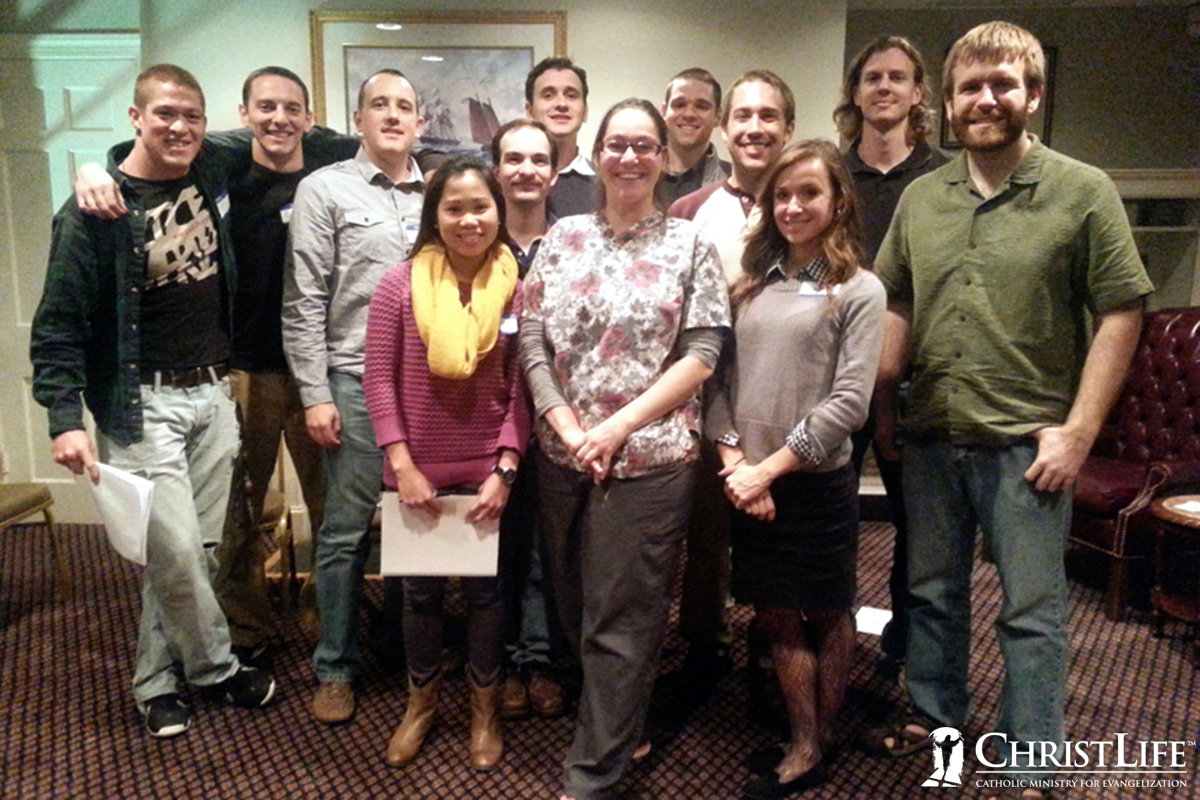
I remember hearing a talk by Fr. Dave Pivonka in which he said that we need two conversions. If our first conversion is from the world to Christ, a second conversion is to the world with Christ. Bringing Jesus Christ to a post-Christian culture is not easy. It is often easier -- especially when one finds good Christian relationships -- to stay in a “Christian bubble” where we don’t become “salt” and “light” to the world around us. We can end up reducing the Great Commission to simply “being nice” to the people around us and hoping they convert and become disciples of Jesus Christ. Rather, Jesus and the Church constantly challenges us to go forth together to the peripheries to bring the Gospel to everyone.
After our first Sharing Christ course, I remember standing in front of the young adults and saying that I had a crazy idea -- running Discovering Christ in a bar, to reach our contemporaries. My friend Danny later remarked that when he first heard the idea he thought to himself, “that’s a long shot.” But, we decided to try it out. We prayed and interceded, sent out letters to obtain the needed funding, rented out a bar in a historic district of our local town, walked the streets inviting people, and ultimately put on the 7-week course. Several people ended up showing up off the street and friends of team members came, but after the course most of the new people didn’t stick around. On one level we knew we were sowing seeds, but it almost felt like a failure. As we began to reflect on the experience, we realized that one of the biggest fruits was in us. Our mentality had changed. For the first time our team of 15-20 young adults owned the Church’s mission of evangelization. For many people it was a second conversion. It stretched us way out of our comfort zones.
Whether it was running a Discovering Christ course in a bar, or coming alongside college students or parishioners to help run a course at a local campus or parish, each time the young adults who were attending the meetings were challenged to go from only receiving to giving. As one young adult put it:
“I distinctly remember the time when I started to feel like I wanted to go from being a consumer in the community to also being a provider. That feeling has persisted through most of my time in ChristLife which is why I've done things like lead small groups, and help out with Discovering Christ courses.”
This second conversion is our aim at ChristLife Young Adults. We truly want people to first encounter Jesus Christ, but to ultimately become missionary disciples who are outward bound and who “no longer live for themselves but for him who for their sake died and was raised” (2 Corinthians 5:15).
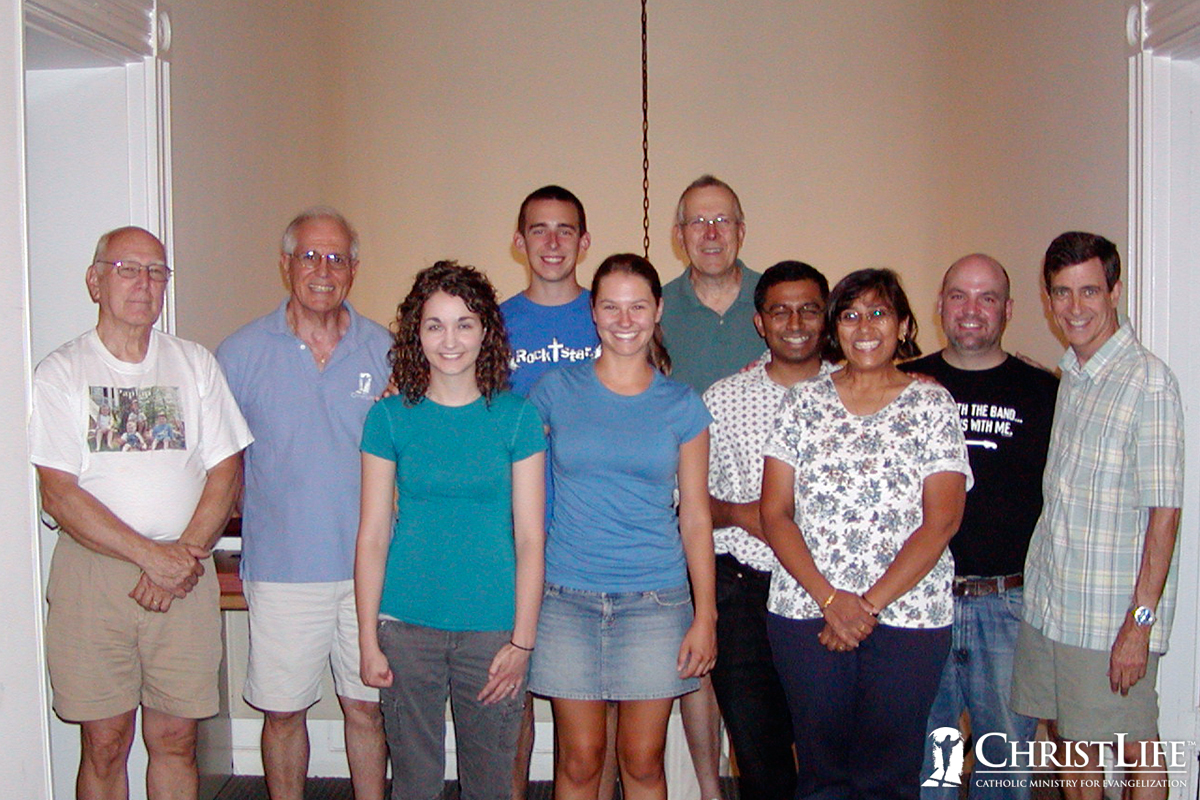
A final lesson learned is to not underestimate the behind the scenes work.This begins firstly with prayer, the most important behind the scenes work. As Oswald Chambers said, “Prayer does not prepare us for the greater work, prayer is the greater work.” ChristLife staff as a whole and our young adult leadership team regularly prays for guidance in our work with young adults and for the Holy Spirit to empower us to help young adults encounter Jesus Christ.
Another key ingredient in the behind the scenes work is the contribution of older adults in evangelizing young adults. The beginnings of ChristLife Young Adults can be traced to the older generation laboring side-by-side with the young adult generation. It would never have started without the active support, presence, and mentorship of Dave Nodar and other adults. Specifically, the Discovering Christ course in the summer of 2009 was truly an intergenerational effort. We had a team of about twelve young adults who served “on the frontline” as facilitators and as emcee and worship leader. Behind the scenes were at least a dozen older adults who generously served in the kitchen, with hospitality, registration, and setup / clean-up.
Leadership is also a very important behind the scenes work because they keep ChristLife Young Adults on mission, they carry the vision forward, and truly exemplify ChristLife's charism of evangelization. Leaders are critical in encouraging people to take ownership of the mission. True leadership encourages anything but passivity, but raises people up in their gifts and talents.
Personally, I have been incredibly blessed that ChristLife decided years ago to place a great emphasis upon young adult evangelization. It has been a journey of faith and trust in God, especially financially. In fact years ago ChristLife didn’t have enough funds to pay all four of us on staff, and one woman decided to resign because she believed so strongly in keeping a young adult presence on staff at the time (myself).
Don’t despise the day of small beginnings. ChristLife Young Adults didn’t happen overnight. It took years of prayer, planning, mentorship, and outreach before the community was birthed in 2009. I hope in telling the story of ChristLife Young Adults, you find encouragement, hope, and new ideas for the work the Lord has given you to do. Please don’t hesitate to contact us if you have questions or ideas in how we can collaborate to help evangelize the young adult generation.


